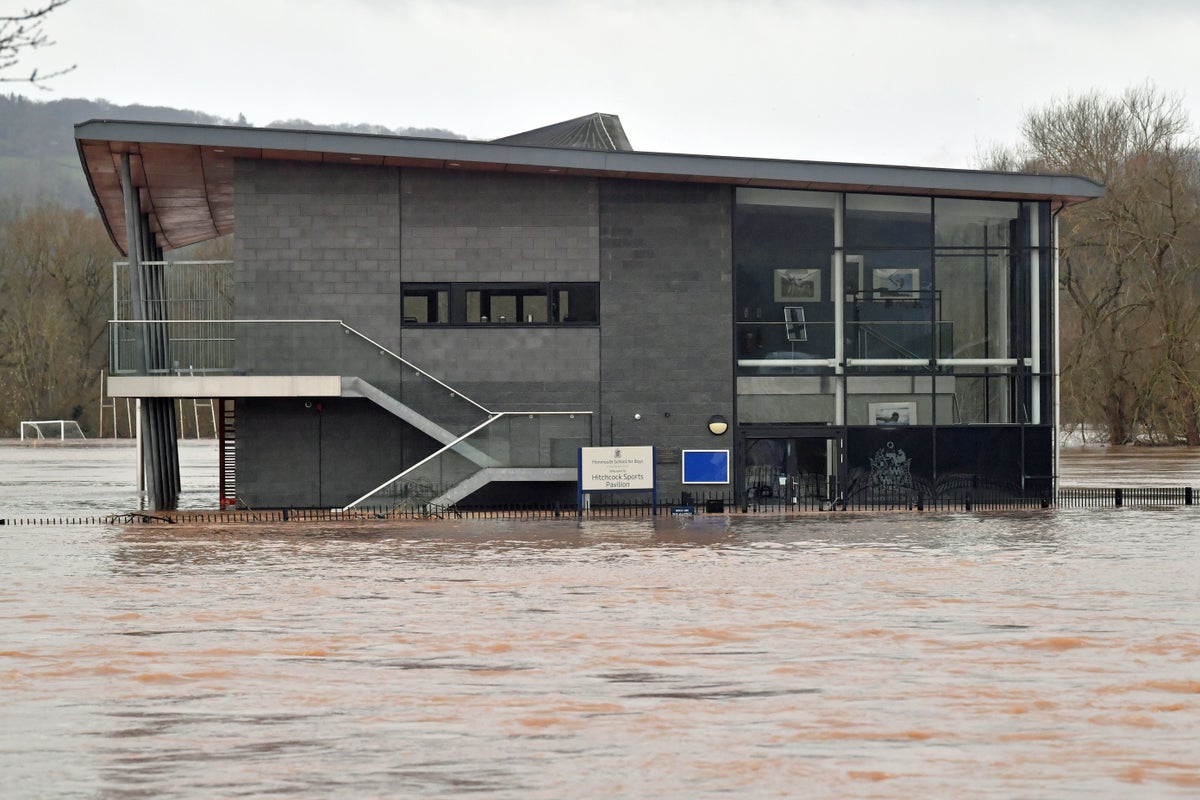
The Department for Education (DfE) is “not moving at pace” to deliver its sustainability commitments, undermining its own targets, MPs have warned.
The Environmental Audit Committee (EAC) said on Thursday that only 20% of the UK’s school estate will have been retrofitted and therefore made net zero compliant by 2050 under the Government’s current progress.
In a three-page letter to Education Secretary Gillian Keegan, EAC chairman Philip Dunne said the committee has been examining the DfE’s future sustainability, based on the findings of the recent National Audit Office report.
Mr Dunne wrote: “We are concerned that the potential impact of climate change on schools, particularly in respect of risks from flooding, overheating and water scarcity, is not adequately understood across those who have stewardship of the education estate in England.”
He added that the EAC welcomed schemes such as the DfE’s Climate Action Plans, but is concerned that the availability of sufficient funding could hamper efforts to truly address the effects of warming on the education estate.
In the letter, Mr Dunne noted that the retrofits required to the estate in order to reach net zero will be a significant and costly undertaking which could amount to an annual cost of £2 billion.
It comes as the DfE already faces costly refits to school buildings with more than 40 believed to have been built with some form of reinforced autoclaved aerated concrete (Raac), which is prone to collapse after around 30 years.
The committee recommended the Government’s approach to the issue should provide the greatest value for money by addressing sustainability and climate risks alongside the Raac refits, the letter said.
It also called on the DfE to publish urgently detailed plans for the mitigation of likely climate risks to the school estate as well as a fully costed plan for the achievement of its sustainability strategy.
There is no time to lose and the Department for Education must urgently publish detailed plans for mitigating risks caused by climate change, and set out how it will deliver its own sustainability strategy— Philip Dunne, EAC
In a statement, Mr Dunne said: “Education is the public sector’s largest emitter of carbon from buildings, amounting to 37% of all public sector emissions. Therefore, getting a grip and stemming these dangerous emissions is critical for our net zero future.
“But the committee is concerned that given the scale of the challenge, the current pace of the work required to meet net zero, lacks urgency.
“It struck the committee that while there is some understanding of the dangers climate change poses to schools and colleges in England, not enough is being done to adapt to the risks from flooding, overheating and water scarcity.
“Making the education estate fit for Net Zero Britain will be a costly and significant undertaking.
“There is no time to lose and the Department for Education must urgently publish detailed plans for mitigating risks caused by climate change, and set out how it will deliver its own sustainability strategy.”
The PA news agency has contacted the DfE for comment.







